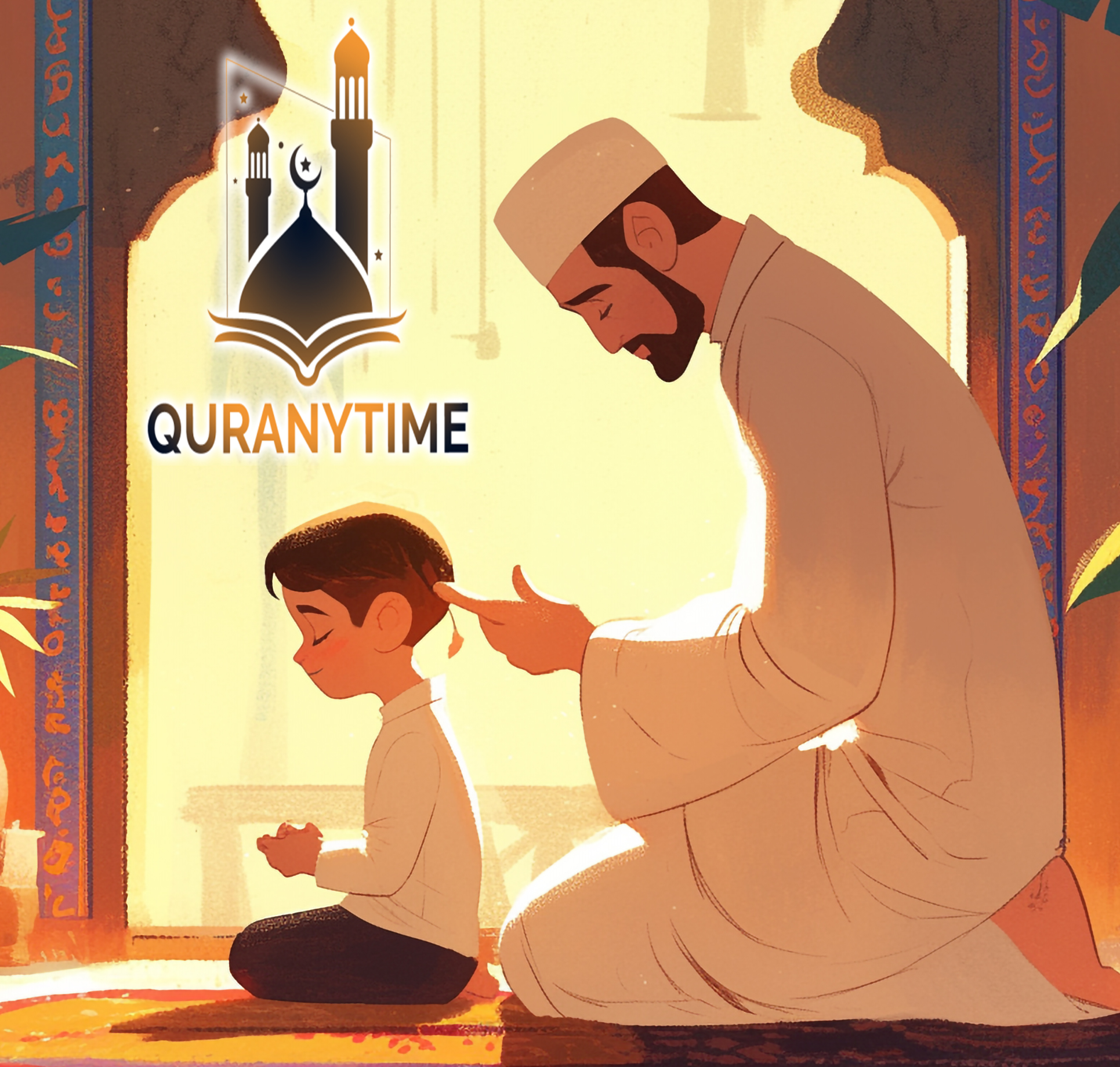What Are the Five Pillars of Islam? The Five Pillars of Islam are the foundation of a Muslim’s faith and practice. These pillars represent the core beliefs and actions that every Muslim is expected to follow and live by. They provide a spiritual framework for a Muslim’s life, emphasizing submission to Allah, fostering discipline, and promoting a sense of community. Let’s take a closer look at each of these pillars and their significance in Islam.
What Are the Five Pillars of Islam?
1. Shahada (Faith)
The first and most fundamental pillar is the Shahada, the declaration of faith. It states, “There is no god but Allah, and Muhammad is the Messenger of Allah.” This simple yet profound statement expresses the core belief of Islam: that there is only one God (Allah), and that Muhammad is His final prophet. Reciting this declaration with sincerity is how one officially becomes a Muslim. The Shahada is also a constant reminder to Muslims of their devotion to Allah and their commitment to follow His guidance.
2. Salah (Prayer)
Salah refers to the five daily prayers that Muslims are required to perform. These prayers are offered at specific times throughout the day: at dawn, noon, mid-afternoon, sunset, and night. Salah serves as a direct link between the worshipper and Allah, and it is considered a spiritual exercise that renews a Muslim’s faith. Muslims face the Kaaba in Mecca during these prayers, uniting them with Muslims all over the world. Salah also instills discipline, regularity, and mindfulness in a believer’s life.
3. Zakat (Charity)
Zakat is the practice of charitable giving and is often referred to as “purification of wealth.” Muslims who meet the necessary financial criteria are required to give a portion of their income—typically 2.5% of their savings—annually to those in need. This pillar promotes social equality and ensures that wealth circulates within the community, helping to uplift those who are less fortunate. By fulfilling Zakat, Muslims demonstrate their responsibility to support the welfare of others and recognize that their wealth is a trust from Allah.
4. Sawm (Fasting)
During the Islamic holy month of Ramadan, Muslims observe Sawm, or fasting, from dawn until sunset. This fast includes abstaining from food, drink, smoking, and marital relations. The fast is more than a physical act of self-control; it is also a spiritual exercise aimed at increasing piety, self-discipline, and empathy for the less fortunate. Ramadan is a time for reflection, increased worship, and seeking forgiveness. The fast is broken each day with a meal called iftar, often shared with family and friends, fostering a sense of community.
5. Hajj (Pilgrimage)
The Hajj is a pilgrimage to the holy city of Mecca in Saudi Arabia, and it is required of every Muslim who is physically and financially able to undertake it at least once in their lifetime. The pilgrimage occurs during the Islamic month of Dhul-Hijjah and involves a series of rituals that commemorate the actions of the Prophet Ibrahim (Abraham), his wife Hagar, and their son Ismail. Hajj is a deeply spiritual journey that symbolizes unity, equality, and humility, as Muslims from all over the world gather in Mecca dressed in simple white garments, setting aside differences of wealth, race, and status to stand as equals before Allah.
The Five Pillars of Islam are essential acts of worship that provide structure and guidance to a Muslim’s life. Each pillar emphasizes a different aspect of faith and community, encouraging Muslims to stay connected to their Creator and to contribute positively to society. By observing these pillars, Muslims not only strengthen their relationship with Allah but also promote values such as discipline, compassion, and unity in the world.
By adhering to the Five Pillars of Islam, Muslims engage in a holistic form of worship that touches on all aspects of their lives—spiritual, moral, and social. These pillars are not just individual practices but are meant to foster a deep sense of community and shared responsibility among Muslims worldwide. Let’s explore how these pillars impact both personal and communal aspects of life.
The Personal Impact of the Five Pillars
For individual Muslims, the Five Pillars act as a spiritual compass, guiding their actions and decisions in everyday life. Here’s how each pillar contributes to personal development:
- Shahada (Faith): Repeating the Shahada reinforces a Muslim’s identity and helps them remain centered in their faith. It serves as a constant reminder of Allah’s presence and the responsibility to live according to His teachings.
- Salah (Prayer): Performing the five daily prayers helps Muslims maintain mindfulness and discipline. Each prayer offers a moment to pause from worldly affairs, reflect on personal conduct, and seek forgiveness or guidance from Allah. The structured nature of Salah also instills time management and dedication.
- Zakat (Charity): The act of giving purifies not just wealth, but the heart as well. It teaches generosity, selflessness, and empathy for those who are less fortunate. By giving a portion of one’s wealth, Muslims recognize that everything they own is ultimately from Allah and should be shared for the benefit of the wider community.
- Sawm (Fasting): Fasting during Ramadan cultivates self-control, patience, and empathy. Abstaining from food and drink, particularly in the presence of others who may not be fasting, encourages Muslims to develop willpower and endurance. The experience also provides a stark reminder of the struggles of those who live in poverty.
- Hajj (Pilgrimage): Undertaking the pilgrimage to Mecca is often described as a transformative experience. It instills humility, as pilgrims leave behind their material wealth and social status to embark on a spiritual journey. The Hajj fosters a sense of global brotherhood, as Muslims from all over the world come together, symbolizing the unity of the Muslim ummah (community).
The Communal Impact of the Five Pillars
While the Five Pillars focus on individual acts of worship, they also have profound effects on the broader Muslim community. These pillars create a sense of shared identity and mutual support among Muslims:
- Salah (Prayer): The communal aspect of Salah is evident in Jumu’ah, the Friday congregational prayer. This gathering of Muslims fosters a sense of brotherhood and unity. It also strengthens local communities, as people come together to pray, exchange knowledge, and discuss community needs.
- Zakat (Charity): Zakat serves as a built-in welfare system for the Muslim community. By redistributing wealth, it helps reduce poverty and provides financial support to those in need, including widows, orphans, and the homeless. This pillar promotes social justice and reinforces the concept of communal responsibility.
- Sawm (Fasting): Ramadan is a time of increased social interaction within the Muslim community. Families, friends, and neighbors gather for iftar meals, breaking their fast together. Mosques often provide food for the needy, and special Ramadan events encourage collective worship and charity.
- Hajj (Pilgrimage): The Hajj brings Muslims from every corner of the globe, creating a powerful symbol of unity. The pilgrimage transcends race, nationality, and socio-economic status, fostering a sense of global solidarity among Muslims. Upon returning home, pilgrims often share their experiences, enriching their local communities with the spiritual lessons they have learned.

The Five Pillars in Modern Society
In today’s fast-paced world, the Five Pillars of Islam offer a grounding force for Muslims. While technological advances and modern lifestyles may present challenges, the principles behind the Five Pillars remain timeless. Through Shahada, Muslims maintain their faith in a changing world; through Salah, they carve out time for spiritual reflection; through Zakat, they continue to address social inequalities; through Sawm, they practice self-discipline in a consumer-driven society; and through Hajj, they experience a sense of global unity in a world often divided by borders and differences.
Muslims around the world strive to live by these pillars, adapting them to their circumstances while preserving their spiritual essence. In doing so, they contribute positively to their communities, strengthen their personal faith, and build a global network of compassion, unity, and faithfulness.
The Timeless Relevance of the Five Pillars
The Five Pillars of Islam are much more than rituals—they represent a comprehensive way of life that encourages moral integrity, social justice, and spiritual growth. Whether in a personal or communal context, these pillars remain as relevant today as they were over 1,400 years ago when they were first introduced. They guide Muslims in their relationship with Allah and with others, ensuring that faith is not just a matter of belief, but also a matter of action and responsibility. By upholding the Five Pillars, Muslims fulfill their duties to their Creator while contributing to the well-being of society, embodying the true spirit of Islam.


